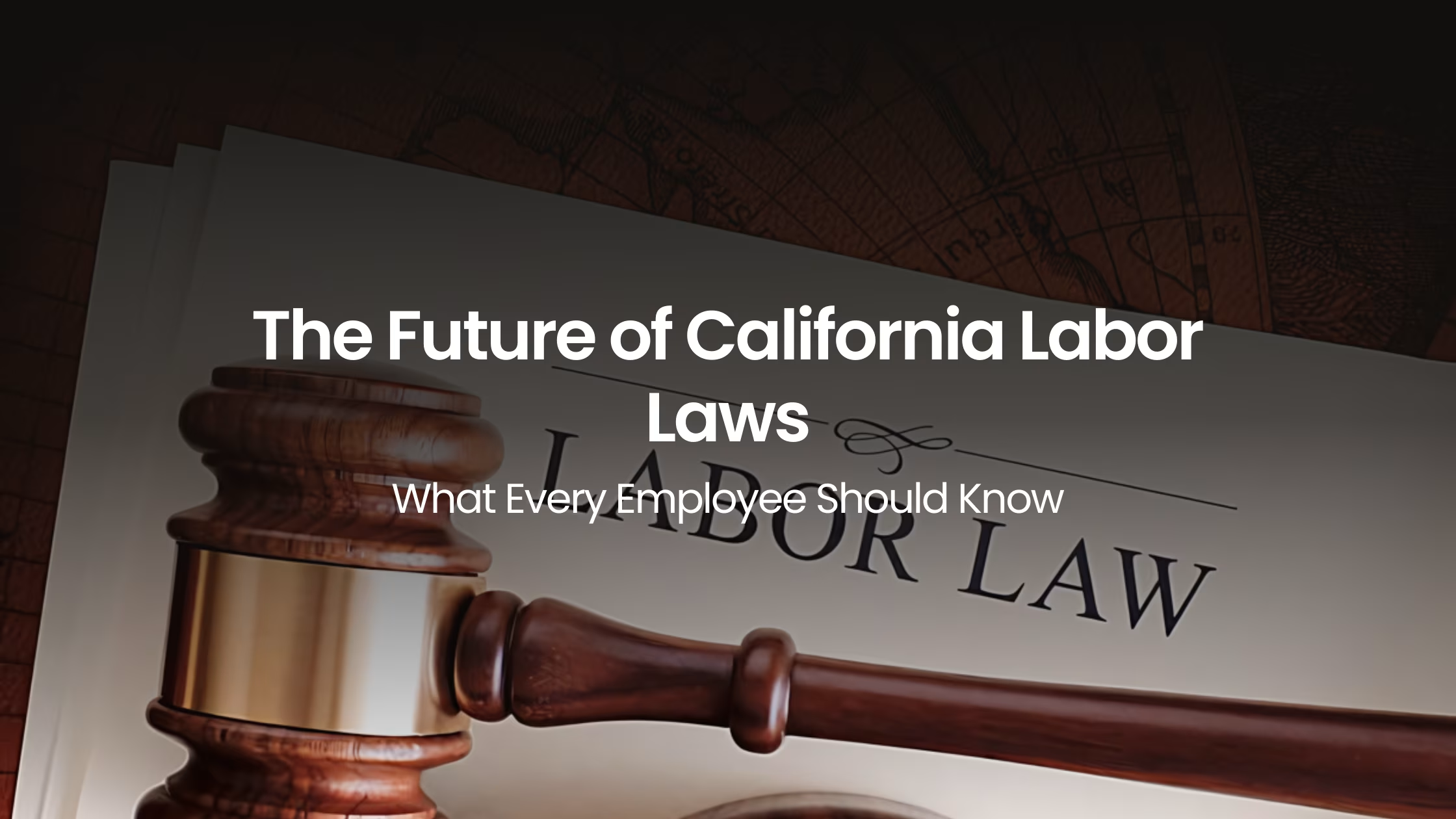In a rapidly evolving workplace landscape, staying informed about your rights as an employee in California isn’t just helpful, it’s critical. With major legislative shifts on the horizon, 2025 and beyond are poised to reshape the way workers engage with employers. From minimum wage increases to remote work protections, California employment law is undergoing a transformation.
At LADVA LAW, we closely track and advocate around changes in state labor statutes to protect workers. Whether you’re employed in a small retail shop in Napa or a tech firm in San Jose, this blog will help you understand what’s coming, what it means, and how you can act on it.
Overview of California Labor Law Evolution
California has long led the nation in strong worker protections. But today’s issues including gig economy classification, hybrid work policies, wage transparency, and AI surveillance in the workplace are testing the boundaries of traditional labor regulations.
Here are some trends and legal actions shaping the labour laws in California:
Landmark Case Study: Dynamex v. Superior Court (2018)
One of the most influential legal decisions in recent California labor history is Dynamex Operations West, Inc. v. Superior Court of Los Angeles (2018).
In this case, the California Supreme Court adopted the ABC test to determine whether a worker is an employee or an independent contractor. The ruling redefined employment status and led directly to Assembly Bill 5 (AB5).
ABC Test Highlights:
A worker is presumed to be an employee unless:
- They are free from control of the hiring entity.
- They perform work outside the usual course of business.
- They are engaged in an independently established trade.
Gig companies like Uber and Lyft fought this ruling, eventually leading to Proposition 22, a controversial ballot measure carving out exceptions for app-based drivers.
As these legal battles continue, california state employment laws will likely evolve to strike a new balance between flexibility and fairness.
What to Expect in 2025 and Beyond
1. Minimum Wage Will Rise Further
California leads the nation with its high minimum wage, but it’s far from done. Expect:
- Annual indexing tied to inflation (starting in more cities)
- Industry-specific minimums, especially in healthcare and fast food
2. More Remote Work Protections
Legislators are exploring new rights for remote workers, such as:
- Mandatory reimbursement for home office equipment under Labor Code §2802
- The right to disconnect after work hours
- Anti-surveillance laws to prevent invasive employer monitoring via webcam or keystroke tracking
3. Stronger Anti-Retaliation Provisions
More employees are speaking up against unsafe workplaces and discrimination. Proposed bills would:
- Increase penalties for employers who retaliate against whistleblowers
- Expand protection categories, including immigration status and caregiving duties
4. Increased Regulation on AI in Hiring
California is one of the first states to propose legislation requiring employers to disclose, audit, and justify AI use in employment decisions like hiring, promotions, and terminations. SB 7 and AB 1018 are in early stages but reflect strong bipartisan interest.
5. Ban on Captive-Audience Meetings
Under SB 399, employers are prohibited from requiring workers to attend meetings involving political, religious, or ideological communications unrelated to their job duties. This law took effect January 1, 2025.
The Role of Labor Boards and Enforcement
The California labour board, formally known as the California Labor Commissioner’s Office, is the state’s primary enforcement agency for wage and hour violations.
In Riverside County, for example, the local labor board Riverside County has reported a rise in:
- Claims for unpaid overtime
- Retaliation complaints
- Employer failure to provide mandated rest breaks
Employees can file claims through the DLSE (Division of Labor Standards Enforcement), which operates both online and through physical hearings.
Common Violations Filed:
(Source: California Department of Industrial Relations)
Attorney Insight: My Perspective as a Trial Lawyer
As a trial attorney with over 25 years of experience, I’ve stood in courtrooms across San Francisco, Contra Costa, Oakland, San Mateo, and beyond, fighting for workers whose rights were violated.
Here’s the truth: too many employers rely on the hope that employees don’t know their rights.
With AI tools monitoring productivity, gig workers losing benefits, and wage gaps increasing, the need for updated california employment law protections has never been more urgent.
Many of our firm’s most impactful wins have come from simply helping workers document their experience, file a strong complaint, and demand their rights through legal channels.
What California Employees Should Do Now
1. Stay Informed
Visit the California Department of Industrial Relations regularly to keep up with updates.
2. Document Everything
Save emails, log hours worked, and record any suspicious employer behavior.
3. File Early
Most claims must be filed within 1 to 3 years, depending on the violation.
4. Consult Legal Experts
Even if you’re unsure whether your rights were violated, a consultation can uncover legal options you didn’t know existed.
Need Legal Help Understanding Your Labor Rights?
At LADVA LAW, we proudly serve employees across California who have experienced:
- Wage theft
- Misclassification
- Unsafe work conditions
- Wrongful termination
- Discrimination and retaliation
We have the trial experience and legal insight to fight aggressively for your rights under california state employment laws. Whether your case involves a corporate tech employer or a small business, we bring the same commitment to justice.
Get in touch with our experts for a free consultation or to learn more about your workplace rights.






